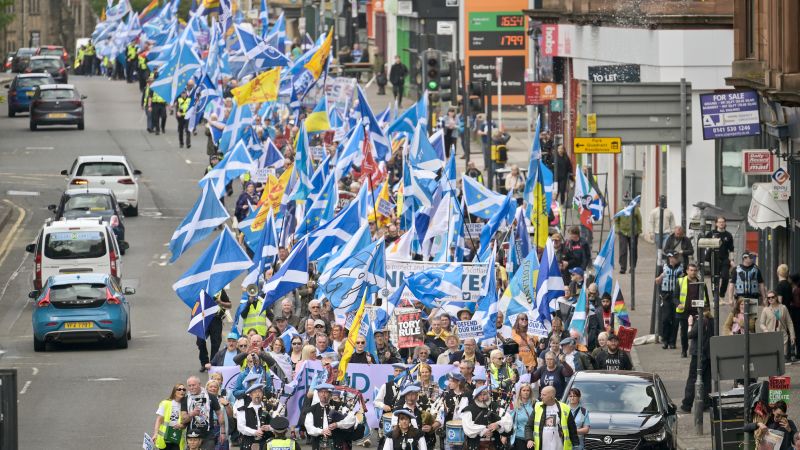

London
CNN
—
Britain’s Supreme Court has ruled that Scotland’s government cannot unilaterally hold a second referendum on whether to secede from the United Kingdom, in a blow to independence campaigners that will be welcomed by Westminster’s pro-union establishment.
The court unanimously rejected an attempt by the Scottish National Party (SNP) to force a vote next October, as it did not have the approval of Britain’s parliament.
But the decision is unlikely to stem the heated debate over independence that has loomed over British politics for a decade.
Scotland last held a vote on the issue, with Westminster’s approval, in 2014, when voters rejected the prospect of independence by 55% to 45%.
The pro-independence SNP has nonetheless dominated politics north of the border in the intervening years, at the expense of the traditional, pro-union groups. Successive SNP leaders have pledged to give Scottish voters another chance to vote, particularly since the UK voted to leave the European Union in 2016.
The latest push by SNP leader Nicola Sturgeon involved holding an advisory referendum late next year, similar to the 2016 poll that resulted in Brexit. But the country’s top court agreed that even a non-legally binding vote would require oversight from Westminster, given its practical implications.
“A lawfully held referendum would have important political consequences relation to the Union and the United Kingdom Parliament,” Lord Reed said as he read the court’s judgment.
“It would either strengthen or weaken the democratic legitimacy of the Union and of the United Kingdom Parliament’s sovereignty over Scotland, depending on which view prevailed, and would either support or undermine the democratic credentials of the independence movement,” he said.
Sturgeon said she accepted the ruling on Wednesday, but tried to frame the decision as another pillar in the argument for secession. “A law that doesn’t allow Scotland to choose our own future without Westminster consent exposes as myth any notion of the UK as a voluntary partnership & makes (a) case” for independence,” she wrote on Twitter.
“Scottish democracy will not be denied,” she said. “Today’s ruling blocks one route to Scotland’s voice being heard on independence – but in a democracy our voice cannot and will not be silenced.”
England and Scotland have been joined in a political union since 1707, but many Scots have long bristled at what they consider a one-sided relationship dominated by England. Scottish voters have historically rejected the ruling Conservative Party at the ballot box and voted heavily – but in vain – against Brexit, intensifying arguments over the issue in the past decade.
Since 1999, Scotland has had a devolved government, meaning many, but not all, decisions are made at the SNP-led Scottish Parliament in Holyrood, Edinburgh.